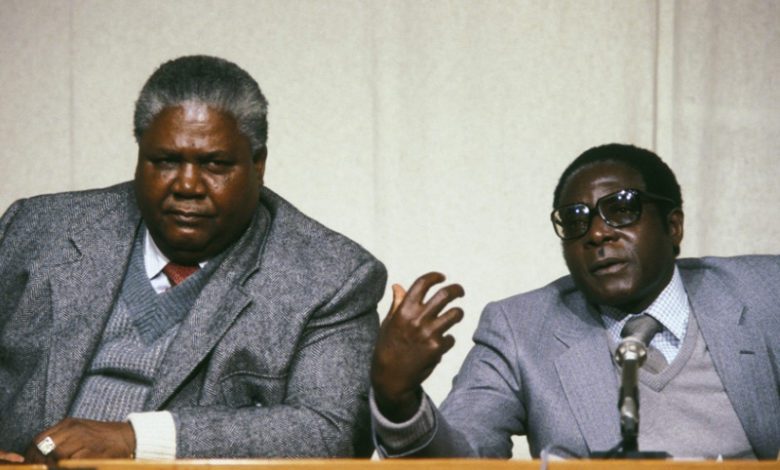‘Zapu 1963 split was the genesis of tribalism’

Opposition political party, ZAPU, says its 1963 split which led to the formation of Zanu, was the genesis of tribalism in the country.
ZAPU celebrated its 59th anniversary in Bulawayo on Thursday, with members reflecting on the arduous journey the party has travelled since its formation to present day.
ZAPU was formed on December 17, 1961, and on August 8, 1963, a breakaway faction led by Reverend Ndabaningi Sithole, with Henry Hamadziripi, Mukudzei Midzi, Herbert Chitepo, Edgar Tekere and Leopold Takawira formed Zanu at Enos Nkala’s house in Highfield.
It is reported these members were dissatisfied with the militant tactics of Nkomo.
Speaking at the celebrations, a member of the National Council of Elders, Alison Mguni, said the party had survived for decades and the 1963 split had not disintegrated its movement.
“1961 to 2020 is no joke and ZAPU has survived for that long, even in 1963 when there was a split led by Reverend Ndabaningi Sithole to form Zanu under tribal lines. Tribalism exists to date, it has spread and was strengthened by (the late president Robert ) Mugabe in 1980,” he claimed.
Mguni said it was worrying how tribal conflicts were becoming more intense, especially among young people.
“Tribalism has become entrenched in society yet before in our time, everyone knew themselves a child of the soil despite where they were born. When we were greeting each other, we would say ‘Sabona mntwana wenhlabathi’ and the response would be ‘Moroi mwana wevhu, mwana wechidaka’ but today we know each other as enemies tribally,” he said.
In its calendar of important dates, ZAPU even marked August 8, the day of the split, as the “Great Betrayal Day, the Formation of Zanu PF.”
Observers and scholars have often remarked that conflicts between and within African parties and guerrilla movements, divisions between voters, strains within the cabinet and government of Zimbabwe are rooted in tribalism.
Some may see these challenges in terms of class conflict; but others, however, see them in terms of ethnicity.
Others believe tribalism today is characterised by marginalisation, hate speech, misgovernance, economic and infrastructural development neglect and has become branded in the minds of people through various social practices.
Mguni said ZAPU was the foundation and basis of Zimbabwe because its military wing, ZPRA played a big role in liberating the country.
“Together with Umkhonto WeSizwe, ZPRA fighters showed prowess and the Hwange Battle proved to the Rhodesian forces that fighting had started. ZPRA missed the Rhodesian’s General, Peter Walls ( Head of the Armed Forces of Rhodesia) at Kariba Dam which pushed the Rhodesian forces to hatch a plan to kill Nkomo at Lusaka,” said the ZAPU elder.
“The forces gun machinery would be heard giving thunderous booms but we matched the gunfights because ZPRA was in control. The whites know the prowess of ZPRA, the Ndebele. Look at the battle at Gadadi, the Ndebele warriors gave the white settlers a hard time, same in Lalapanzi, at Pupu.”
Mguni claimed ZAPU’s leadership acumen and ZPRA’s prowess struck fear into the hearts of the British who connived to ensure that the party does not gain control of the country and elevated a leader of their choice.
“It is crucial to recognise ZAPU; this is a courageous party that we can’t abandon. The one who abandons ZAPU throws away their identity. This 59th celebration is to reinforce that we must encourage each other that as we head to congress, we must elect leaders that will carry the mother party forward who can serve in government positions,” Mguni said.





